Alice Ruggles murder: Stalking signs missed
- Published
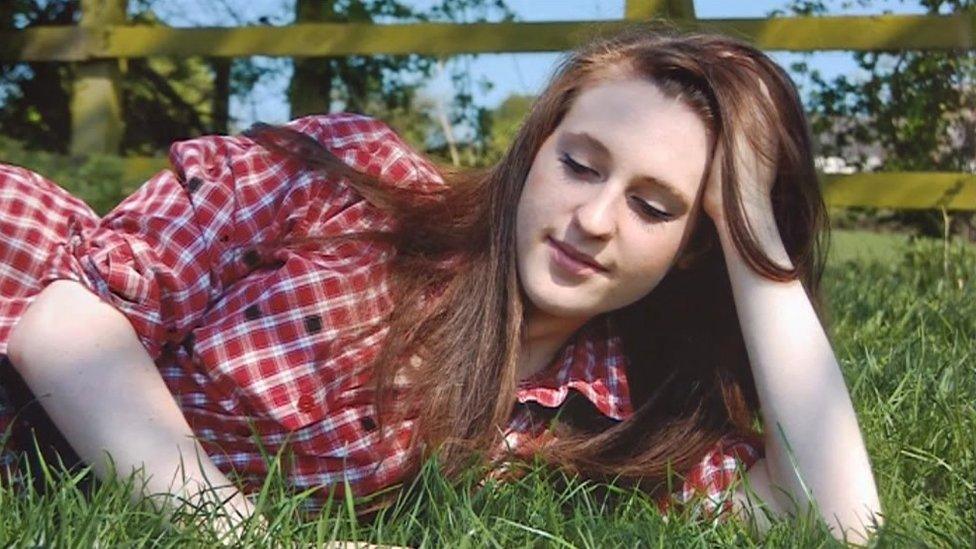
Alice Ruggles grew up in Leicestershire, but lived in Gateshead after university
A grieving mother whose daughter was stalked and murdered has spoken of her regret at not recognising the danger she was in.
Alice Ruggles was killed by her ex-boyfriend Trimaan "Harry" Dhillon, who broke into her flat in Gateshead and cut her throat.
Her parents, from Leicestershire, have set up the Alice Ruggles Trust to raise awareness of the signs of stalking.
They are also campaigning for police to take more action against stalkers.
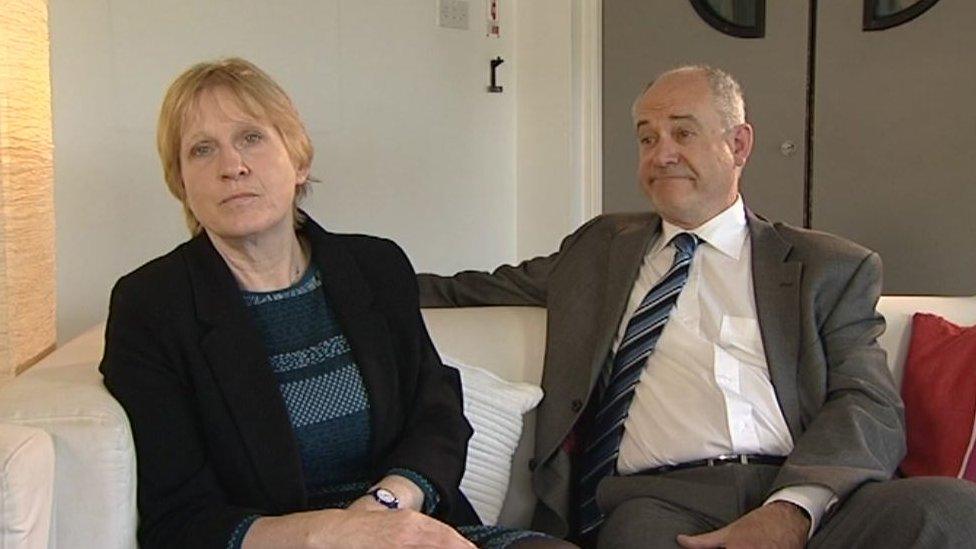
Parents Sue Hills and Clive Ruggles said the trust would be worthwhile if they manage to save "just one person"
Dhillon - who was a serving soldier - "bombarded" Alice with text messages and phone calls, gave her unwanted gifts, contacted her friends and family and threatened to kill himself.
Sue Hills, Alice's mother, said: "All these things mounted up to a big picture of a typical stalking person.
"I wish I'd realised that this was stalking and I'd known that stalking was illegal and that I could have made sure that he was prosecuted for stalking.
"I'd have made sure Alice was never on her own in the house and she realised what danger she was actually in."
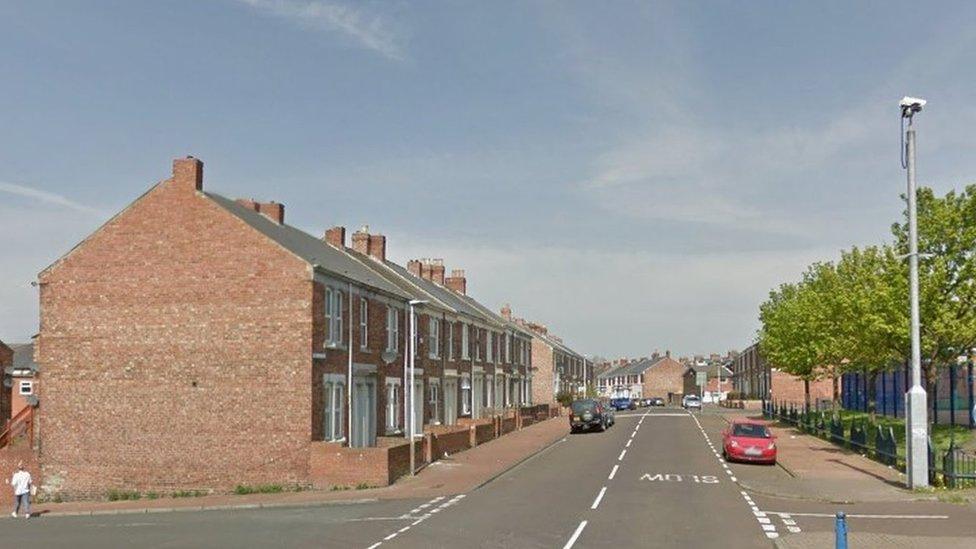
Alice Ruggles was found dead at her home in Rawling Road, Gateshead, by her flatmate
Dhillon, 26, was found guilty of murder and given a life sentence with a minimum term of 22 years.
The court was told Miss Ruggles, who had complained to police about Dhillon's behaviour, was found on her bathroom floor on 12 October 2016 having bled to death.
WARNING: Audio may be upsetting - clip of the 999 call
The jury was played a frantic 999 call by Miss Ruggles' friend Maxine McGill in which she described finding the 24-year-old "covered in blood" and named Dhillon as the killer, calling him an "absolute psychopath".
In evidence, Ms McGill claimed her friend had complained to police about Dhillon's obsessive behaviour but that she felt she had been "palmed off".
Northumbria Police said at the time no-one knew the level of threat Dhillon posed, but added it had referred their actions to the Independent Police Complaints Commission (IPCC).
Earlier this month, a report by the Inspectorate of Constabulary and the Crown Prosecution Service Inspectorate said victims of harassment and stalking are being left at risk because of failings by police and prosecutors.
The joint inspection looked at 112 recent cases of stalking and harassment in depth, but found not a single one was dealt with properly.
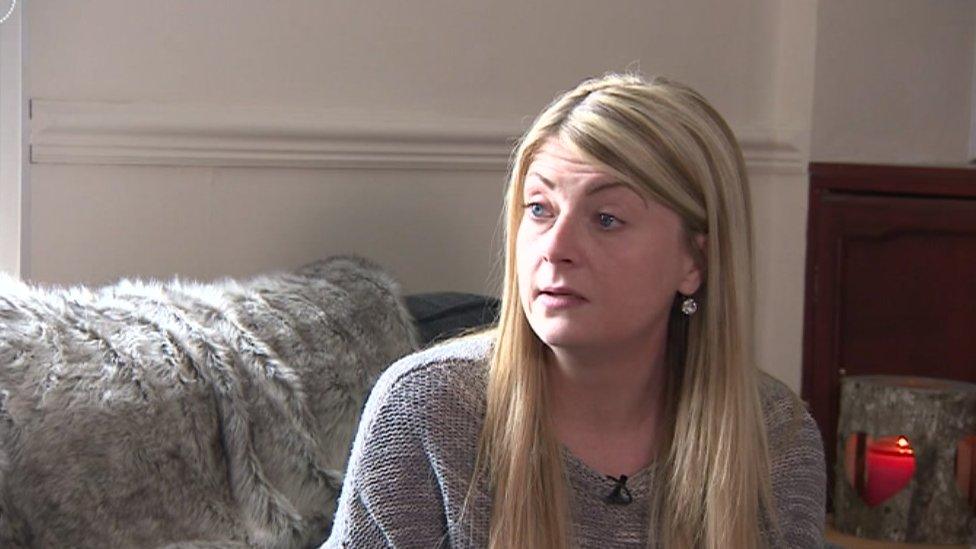
Maxine McGill was Alice Ruggles' best friend and shared a flat with her in Gateshead
Ms Hills said: "The police have got to be much more serious about stalking, they've got to do lots more.
"They need to arrest people for stalking and charge people for stalking, because at the moment that's not happening."
Alice's father, Clive Ruggles, said: "I think police have got to be a lot more prepared to listen to victims coming to them and saying this has happened before.
"I think this is coercive behaviour, this is control."
He said police should "treat that as stalking, not just as a series of individual offences".
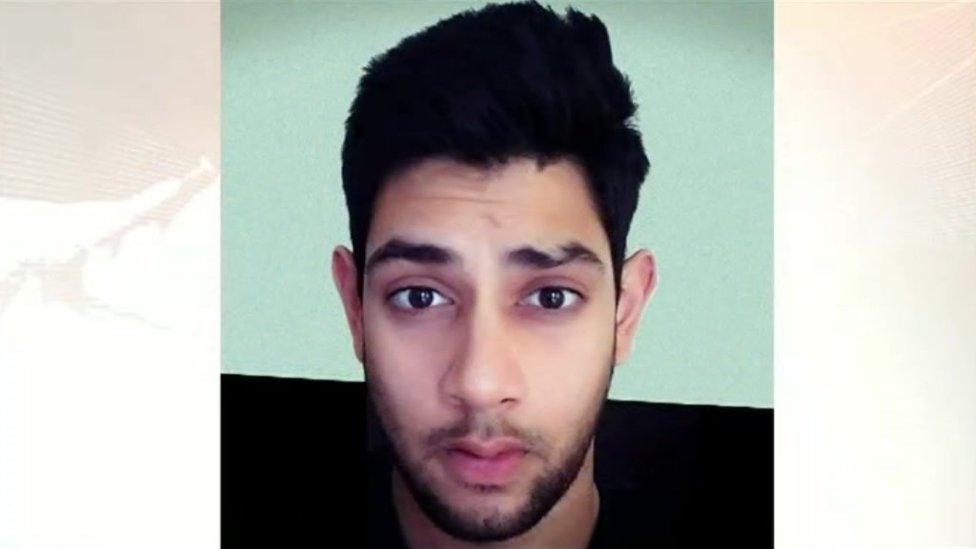
Lance Corporal Trimaan "Harry" Dhillon was convicted of murder and given a life sentence
- Published17 May 2017

- Published27 April 2017
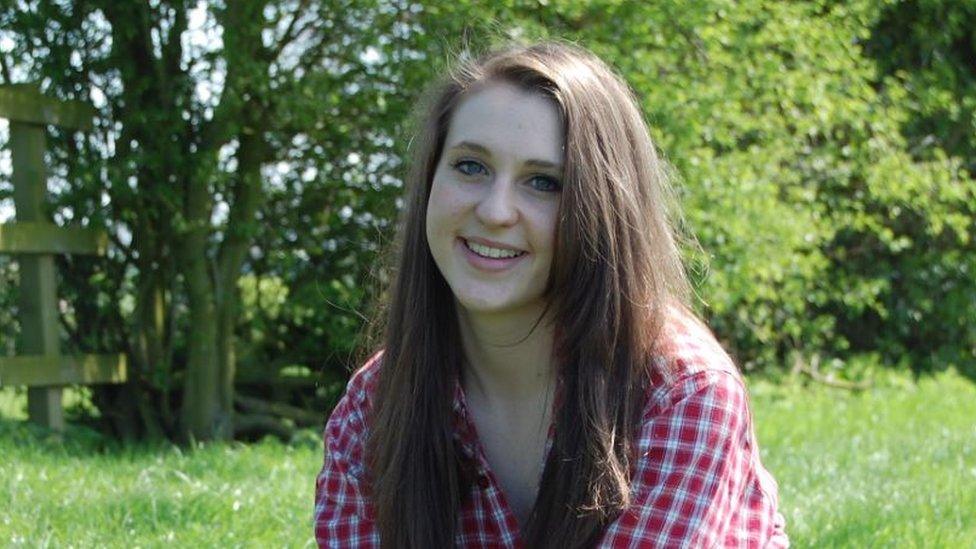
- Published26 April 2017
